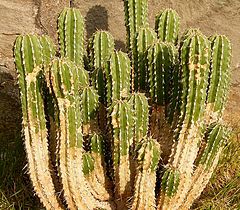Euphorbia is a herb. The parts of the plant that grow above the ground are used to make medicine.
Contents
Uses
Asthma, bronchitis, coughs, hayfever, tumors, digestive problems, intestinal worms, gonorrhea, and other conditions.
Benefits
Euphorbia is used for breathing disorders including asthma, bronchitis, and chest congestion. It is also used for mucus in the nose and throat, throat spasms, hay fever, and tumors. Some people use it to cause vomiting.
In India, it is also used for treating worms, severe diarrhea (dysentery), gonorrhea, and digestive problems.
Cautions
There isn’t enough information available to know if euphorbia is safe.
When taken by mouth, it can cause some side effects such as nausea and vomiting.
Don’t touch the fresh herb. It can cause skin irritation or allergic reactions.
Special Precautions & Warnings:
Pregnancy and breast-feeding: It is POSSIBLY UNSAFE to take euphorbia by mouth if you are pregnant. There is some evidence that it might cause the uterus to contract, and this could cause a miscarriage.
Stomach or intestinal problems: Euphorbia can irritate the stomach andintestines. Don’t use it if you have a stomach or intestinal disorder.
Interactions
None are recorded.
Other names
Asthmaplant, Chamaesyce hirta, Euforbia, Euphorbe, Euphorbia hirta, Euphorbia capitulata, Euphorbium Officinarum, Pillbearing Spurge, Snakeweed
References
Source: WebMD, http://www.webmd.com/vitamins-supplements/ingredientmono-636-euphorbia.aspx?activeingredientid=636&activeingredientname=euphorbia
MedicineNet, http://www.medicinenet.com/euphorbia/supplements-vitamins.htm
Wikipedia, https://en.wikipedia.org/wiki/Euphorbium

